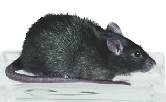
THURSDAY, Feb. 25 (HealthDay News) — New research is providing more insight into a gene linked to autism in humans: When the gene is turned off in mice, they have trouble learning and become obsessive.
Researchers at University of Texas Southwestern Medical Center in Dallas report that a drug reduces the obsessiveness in the mice, raising hopes that it might do the same thing in people, although that’s not yet proven.
“Clinically, this study highlights the possibility that some autism-related behaviors can be reversed through drugs targeting specific brain function abnormalities,” said study senior author Dr. Craig Powell, an assistant professor of neurology, said in a university news release. “Understanding one abnormality that can lead to increased, repetitive motor behavior is not only important for autism, but also potentially for obsessive-compulsive disorder, compulsive hair-pulling and other disorders of excessive activity.”
The researchers studied a protein called neuroligin-1, which helps nerve cells better communicate with each other. The mice who had a disabled form of the gene were normal in some ways but obsessively groomed themselves and took longer to learn a maze than other mice.
A drug called D-cycloserine seemed to help, however.
“Our goal was not to make an ‘autistic mouse’ but rather to understand better how autism-related genes might alter brain function that leads to behavioral abnormalities,” Powell said. “By studying mice that lack neuroligin-1, we hope to understand better how this molecule affects communication between neurons and how that altered communication affects behavior.”
The study appears in the Feb. 24 issue of the Journal of Neuroscience.
More information
The U.S. Centers for Disease Control and Prevention has more about autism.

